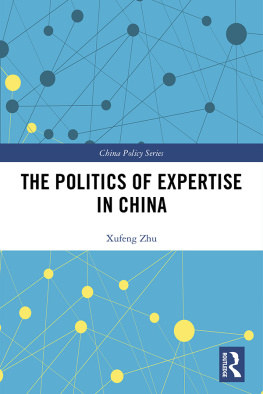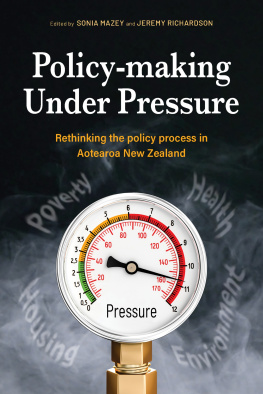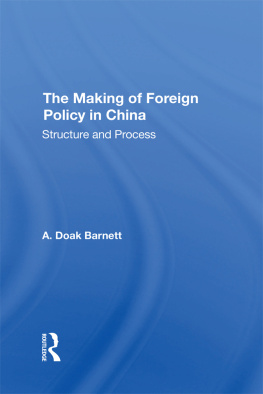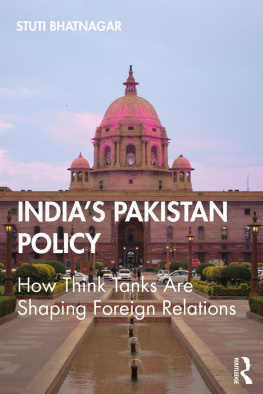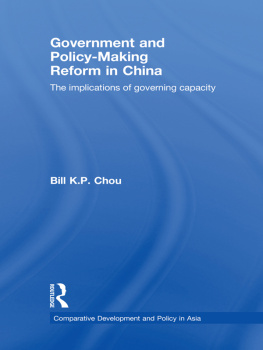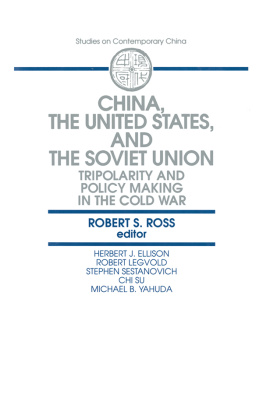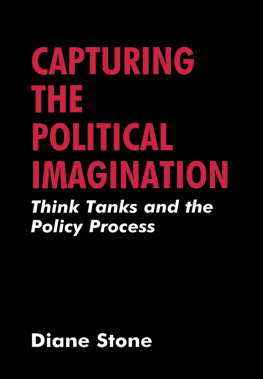The Politics of Expertise in China
Since the reform and opening-up policy was implemented in China, consultations have been increasingly carried out during the policy-making process. This often involves experts, many of whom are based in think-tanks or similar institutions. The degree of access to the policy-making process varies, and consequently some experts influence the policy-making process significantly and others not. This book explores how experts in China engage with the policy-making process and the circumstances, which affect how far they are able to influence policy-making.
Xufeng Zhu is Professor and Associate Dean at the School of Public Policy and Management, Tsinghua University, China. He serves as Director of the Think Tank Research Center of the school. He is the author of The Rise of Think Tanks in China (2013). His recent publications include articles in Journal of Public Administration Research and Theory, Public Administration, Governance, Policy Studies Journal, Policy Sciences, Public Management Review, TheChina Quarterly, Pacific Affairs and many others.
China Policy Series
Series Editor:
Zheng Yongnian
East Asian Institute, National University of Singapore
ChinaAfrica Relations
Building Images through Cultural Co-operation, Media Representation and on the Ground Activities
Edited by Kathryn Batchelor and Xiaoling Zhang
Chinas Authoritarian Path to Development
Is Democratisation Possible?
Tang Liang
Foreign Policies toward Taiwan
Shaohua Hu
Governing Environmental Conflicts in China
Yanwei Li
Post-WesternSociology
From China to Europe
Edited by Laurence Roulleau-Bergerand Li Peilin
Chinas Pension Reforms
Political Institutions, Skill Formation and Pension Policy in China
Ke Meng
Chinas New Silk Road
An Emerging World Order
Edited by Carmen Amado Mendes
The Politics of Expertise in China
Xufeng Zhu
For more information about this series, please visit www.routledge.com/China-Policy-Series/book-series/SECPS
The Politics of Expertise in China
Xufeng Zhu
First published 2019
by Routledge
2 Park Square, Milton Park, Abingdon, Oxon OX14 4RN
and by Routledge
711 Third Avenue, New York, NY 10017
Routledge is an imprint of the Taylor & Francis Group, an informa business
2019 Xufeng Zhu
The right of Xufeng Zhu to be identified as author of this work has been asserted by him in accordance with sections 77 and 78 of the Copyright, Designs and Patents Act 1988.
All rights reserved. No part of this book may be reprinted or reproduced or utilised in any form or by any electronic, mechanical, or other means, now known or hereafter invented, including photocopying and recording, or in any information storage or retrieval system, without permission in writing from the publishers.
Trademark notice: Product or corporate names may be trademarks or registered trademarks, and are used only for identification and explanation without intent to infringe.
British Library Cataloguing-in-Publication Data
A catalogue record for this book is available from the British Library
Library of Congress Cataloging-in-Publication Data
A catalog record has been requested for this book
ISBN: 978-1-138-65186-9 (hbk)
ISBN: 978-1-315-62454-9 (ebk)
Typeset in Times New Roman
by Wearset Ltd, Boldon, Tyne and Wear
Contents
The relationship between knowledge and power has always been a core topic in the intellectual history of human beings. In the science of public policy, this topic is thereupon extended as the role played by experts knowledge in the process of policy change. In the 1960s, when the development of public policy was still in its early stage, scholars were already conducting in-depth studies on expert involvement in the political system. In the following decades, the theory of expert involvement has become an increasingly important branch in the discipline of public policy. Experts, however, are generally considered to be the cause of policy change: scholars place more emphasis on whether and to what extent policy changes have been influenced by experts. On the contrary, we want to answer a counter-intuitive theoretical question in this book: Do policy changes, in turn, influence expert involvement? In answering this theoretical question, we actually acknowledge the endogenous logic between policy change and expert involvement, that is, that policy change and expert involvement interact as both cause and effect.
Experts are those special policy actors who influence the decision-making process through their knowledge and expertise. Owing to the special administrative status taken on by experts during the policy change process, their behavioural patterns and strategic selection are quite different from those of other policy actors, such as government officials, entrepreneurs, non-governmental organisations, citizen and other policy actors. Since the Communist Party of China and the central government first proposed the scientific and democratic decision-making process, experts have become an integral part of Chinas public life. They are also active in every corner of the public domain. On the one hand, they often participate in the policy consultation under the governments invitation, undertake research as requested by the government and even give lectures to leaders of the Political Bureau of the Central Committee. On the other hand, they also write scholarly works to expound their viewpoints, which may differ from those proposed by the government. In fact, some of them have even openly criticised many government policies. Many experts have their special newspaper columns and television programmes and have taken to sharing their opinions in their blogs or microblogs. Nevertheless, there are very few follow-up or theoretical studies about Chinese experts at home and abroad. In particular, overseas scholars who have studied the issues on Chinese experts or intellectuals are mostly classified within the scope of China studies. Few China studies have opened dialogues with modern political science and public policy theories. Therefore, only a few studies have systematically explored the behavioural patterns adopted by Chinese experts to become involved in policy change and the selection mechanism from the level of general theories on public policy. In this book, we have managed to construct a theory on expert involvement in policy change with the aim of expounding on the acting strategies and selecting mechanisms employed by Chinese experts in different types of policy changes.
Experts are always trying to identify the most effective actions to influence policies based on their own resources. Thus, previous studies have suggested that the control and reasonable use of certain resources can offer experts more opportunities to become the key participants who can eventually influence policies. Understandably, an expert will often submit their own research results to the government if he/she has a long-term cooperative relationship with the government, whilst those without such a relationship could only seek for other ways to influence the government. Yet, resources owned by the expert could not act as a full explanation. There are individual experts or research organisations with different resource advantages in one policy area. In different areas of policy, however, we can still observe completely different patterns adopted by experts for involvement. Obviously, in their entirety, the nature of policy changes plays a decisive role in the process so that an expert can stand out in a given policy change by taking certain actions and strategies. Taking this clue as a starting point in consideration, I construct a theory based on the attributes of policy change and the mechanism relationship among patterns of expert involvement.

